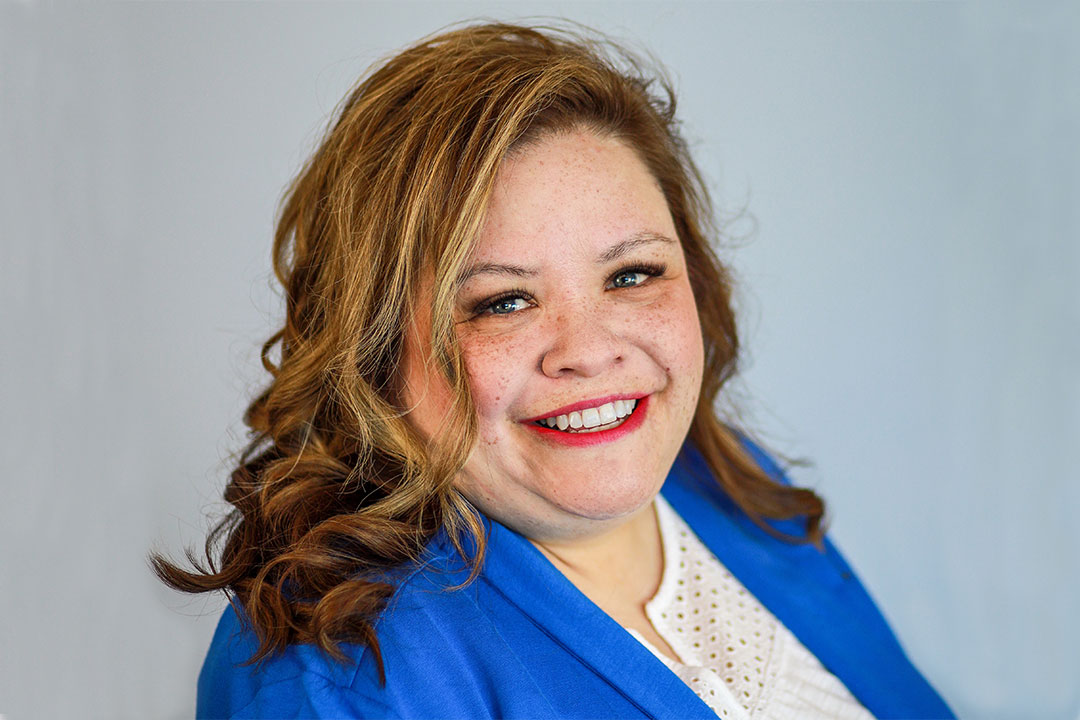
Gaining land management knowledge supports community
Earning the Kanawayihetaytan Askiy Certificate at the University of Saskatchewan (USask) helped Melissa MacDonald grow into her position as Land Director for the Membertou First Nation.
By Jane CaufieldLand is a fundamental right and important asset for First Nations across the country. It contributes to their economic prosperity, provides space for housing, and supports the health of the community. But to ensure the land continues to be beneficial well into the future, a team of professionals are often tasked with the duties and responsibilities of land management.
“Land management is the professional term for the day-to-day activities that go into taking care of reserve lands, including the environment and available resources,” said Melissa MacDonald, land director for the Membertou First Nation in Nova Scotia.
MacDonald is honoured to be land director for Membertou and is grateful for the knowledge she gained as a student in USask’s College of Agriculture and Bioresources Kanawayihetaytan Askiy Certificate program in 2019/20. The specialized certificate program is designed to highlight a broad range of topics to examine the basic environmental, legal, and economic facets of land and resource management to support Indigenous communities.
“The program gave me the foundation for my current position,” said the 2020 graduate of the program. “I gained knowledge and developed skills that have made me an asset to my community.”
Land management helps a community thrive
Membertou is a progressive urban Mi’kmaq community locatedon Unama’ki – Cape Breton Island. And for nearly 30 years, the community has worked hard to ensure its future is promising and bright. To achieve this, chief and council came together and developed major goals that would guide each strategic decision moving forward. One goal developed looks to forge a new economic frontier that blends contemporary innovations with the Indigenous knowledge-based principles of conservation and sustainability of resources for the land and waters.
“We do a lot,” said MacDonald. “We look for ways to support our community through responsible use of the lands, while also monitoring environmental and conservational issues. We are stewards of the land.”
Home to more than 1,300 people, Membertou participates in community events within the Cape Breton Regional Municipality while still maintaining a sense of autonomy. As land director, MacDonald and her team are responsible for several aspects of life in Membertou that help ensure their culture and heritage continue to flourish. From the preparation of land transaction documents to maintaining and protecting historical data, they diligently take care of the lands that Membertou calls home.
A program that fosters growth
Before MacDonald joined the Kanawayihetaytan Askiy Certificate program she had been an employee at the Membertou First Nation for more than a decade, working in various areas including employment resources and tenant relations. The certificate allowed her to grow her skillset so she could continue to support her community in new and exciting ways.
“The program at USask was highly recommended by past graduates in my own province of Nova Scotia and from others across the country,” said MacDonald. “I heard the support team, the instructors and the class content and experiences were great and they were right. Working closely with others in the program helped me to develop a network of lands professionals who I can rely on, and they can rely on me to give information and share experiences.”
Throughout the program, students are given the opportunity to learn about several areas important to their communities including Indigenous rights, land use planning, intellectual property law, and project management. Once completed, students are qualified to participate in the Professional Lands Management Certification Program (PLMCP), which is offered by the National Aboriginal Lands Management Association—something MacDonald proudly undertook as well.
Even though MacDonald had to travel between Nova Scotia and Saskatchewan three times a year to complete classroom-based experience, she said the knowledge she gained was worth it.
“The outdoor, hands-on activities took me out of my comfort zone,” said MacDonald. “I got to dig in the dirt and test soils. I am afraid of bears and other wildlife, but the instructors and others made it a comfortable and interesting experience that I enjoyed very much.”
Above all, MacDonald said that the instructors went above and beyond to ensure that each student cultivated their own success.
“The people that I made memories with—my instructors and my classmates—are now some lifelong friends,” said MacDonald. “I’ve learned a lot from all of them.”
When it comes to giving advice to future students, MacDonald said that each student should make sure they enjoy the ride.
“Soak in all the knowledge. Make connections. All of our communities are unique, but we all share similar barriers, celebrations, and experiences,” said MacDonald. “The winter can be very cold; you will get through it.”
Together, we will work towards Truth and Reconciliation. We invite you to join by supporting Indigenous achievement at USask.

